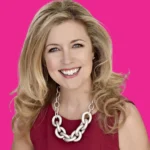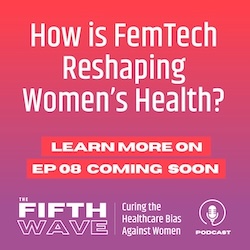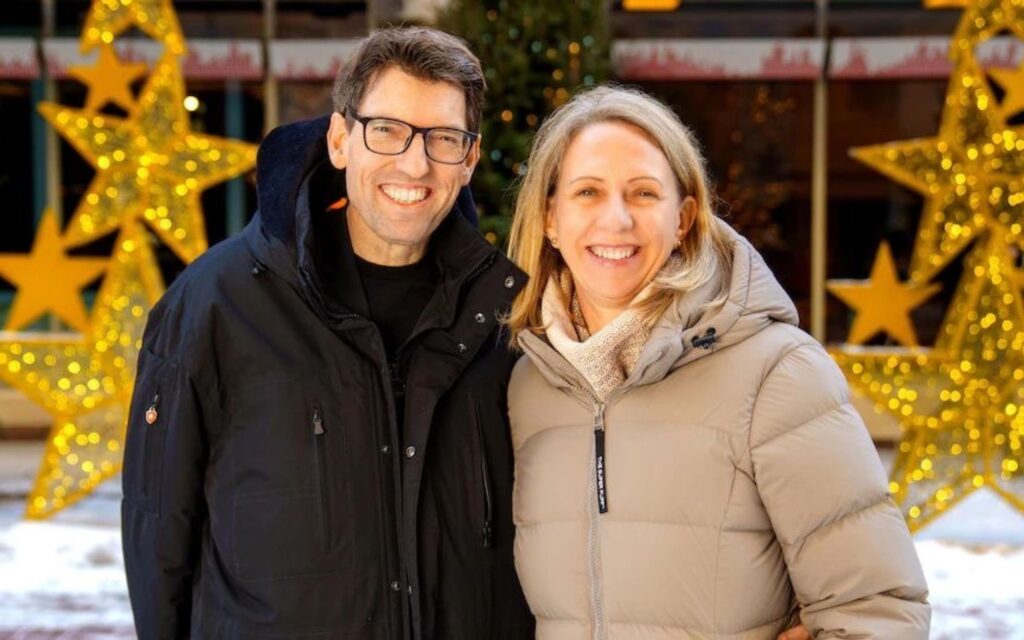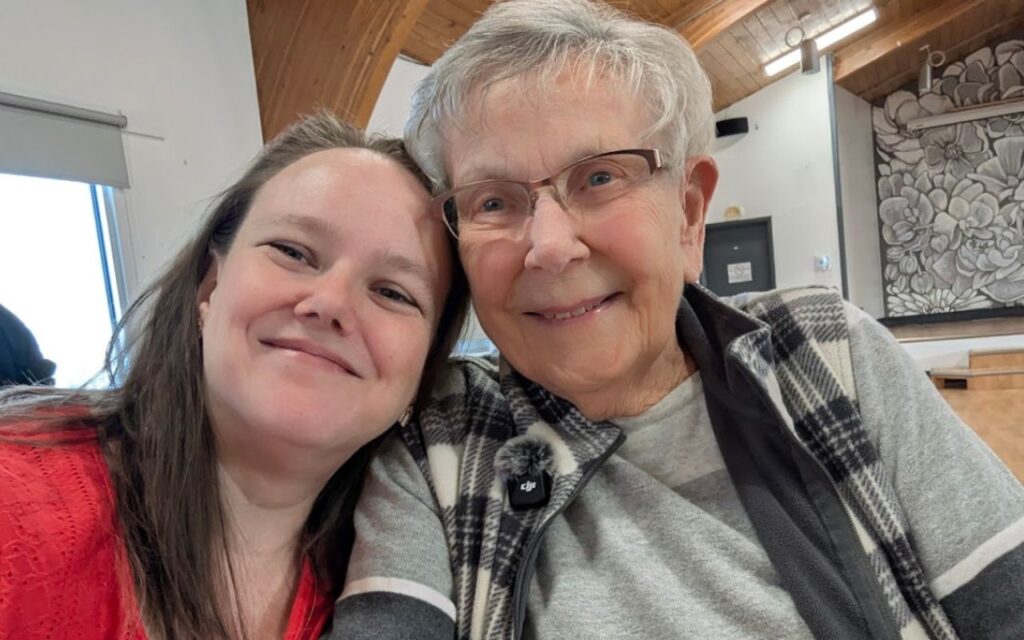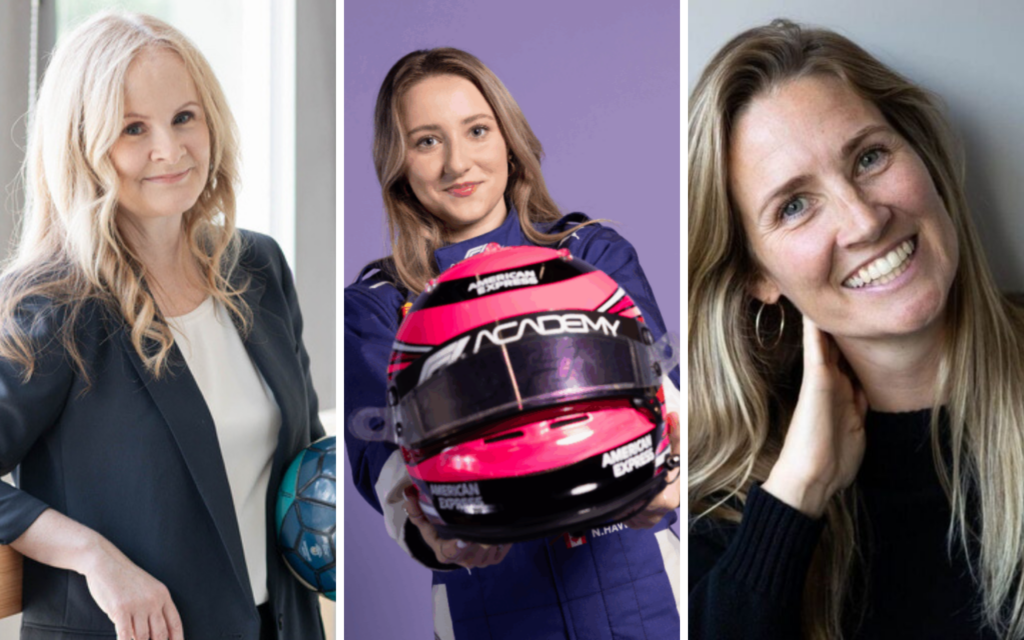We’re willing to bet that every single one of you reading this knows someone — or maybe is someone — who has gone through cancer. The same is true for us here at The Honest Talk. In fact, one of our team members — Victoria (Tor) McGlone — has just fought and won her own battle with breast cancer.
And because February features World Cancer Day, we decided to sit down with Tor for a chat about her journey so far — to ask her questions about how she was diagnosed, what it was like for her in those first surreal moments, and how she found strength during the darkest days.
We hope this conversation inspires you — to do a breast self exam, to ask questions if you’re worried about something that doesn’t feel quite right with your body or your health, to advocate with medical professionals, or to be an ally to someone who needs support during their own cancer journey.
We also hope it might inspire you to reach out to us with your own cancer story — because we firmly believe that by sharing our experiences, we help make each other stronger.
The full conversation with Tor took place via a virtual chat, and the video is available here, but below we’ve condensed Tor’s story, so please read on.
How self-exam helped Tor find signs of breast cancer
Jennifer Stewart: Victoria McGlone is a good friend of mine. She’s a leader in the tech space. She’s a leader in the community. A year ago she found a lump on her breast. So Tor, take us back to that time.
Victoria McGlone: Thanks for having me to talk about my story…. I was in the U.K. on a family vacation. As many women do, I shower in the same way every day, and I have a little routine of how I use my body lotion and my shower gel in the shower.
I was going around my breasts as I always do when I wash them and found a funny pea-sized little thing in my right breast and it was quite deep, but I didn’t think a lot of it. I think as women sometimes, especially if we’ve had children or we’ve tried breastfeeding, we feel lumps and bumps sometimes and they typically go away.
So, I just enjoyed a great vacation with my family, but definitely kept feeling it there. When I came back to Canada, I booked an appointment with my GP, and she confirmed she could feel something, but she said it wasn’t anything to worry about. I was 37.
That was the first foray I’ve had into how our healthcare system treats young cancer patients. There was an element of, ‘this can’t be anything sinister because you’re so young, because you have no family history.’
I didn’t really push to confirm if it was cancer because I didn’t really think it would be. My GP kind of reluctantly gave me a requisition for imaging. I finally got that appointment for imaging and again, wasn’t expecting it to be anything. I went for that mammogram and I guess my world turned upside down right away.
How her breast cancer was diagnosed
Catherine Clark: What happened after you had the mammogram? Did you know something was not right then or was it a call? Tell us what happened.
Victoria McGlone: Whenever you go for imaging, particularly here in Ottawa, the technician can’t tell you anything, but what I’ve learned is their eyes and their body language can tell you a lot.
So, I had a requisition for a mammogram, and if they see something that’s a little odd, then they’ll do an ultrasound. At the time I went for the mammogram first, and many of you women will know you kind of jam yourself into the machine — it’s not a comfortable experience. I was making jokes and she wouldn’t make eye contact with me.
She walked back over to the station and they did the first photo, and I literally heard her gasp. She finished the mammogram and said, “You’re going to need an ultrasound right away today,” and I was like, “Yeah, cool, no problem, let’s rule everything out.”
After the ultrasound, as I opened the cubicle door, there was a woman there in a suit with a clipboard. She said “Would you like to come with me?” And that’s kind of when you think, “Oh, I don’t think this is too great.”
We walked into her office and while they can’t tell you anything officially, I have learned since then that their report is pretty comprehensive. They know cancer when they see it, even if they can’t tell you that.
She said, “We’ve found something in your breast and two of your lymph nodes look suspicious, and we are making an urgent referral for you to the breast health centre.” She gave me a piece of paper, and that was it. I walked out of there completely shell shocked thinking, “Gosh, what on earth is this?”
After you get the pathology, you don’t know what stage you are. So, I knew I had breast cancer, and I knew it was HER2-positive, so I knew my odds were really good. I had CT scans, bone scans, and brain scans, where they essentially look through your whole body to see if the cancer has spread.
I would say that was the hardest week of my entire journey, because I knew I had it, I can feel the lump in my breast, I didn’t know about the lymph nodes, but I really needed to understand how bad is this.
And I’ve learned now with the type of cancer I had that even stage four patients can completely recover from it. I had no idea that it really depends on your type of cancer, which is actually worse than the stage. I think the media would tell us at stage four, it’s over, but at stage one you’re fine.
That week waiting for the staging results was a really hard one. I just remember opening those files and it saying, no evidence of metastatic disease: bones fine, lungs fine, chest fine. So, thankfully it hadn’t spread.
But I think that really showed how quickly cancer can grow. I found a pea-sized lump, and by the time we’ve gone through the imaging and we’re still at staging, it’s three-and-a-half to four centimetres big — it felt like a ping pong ball in there — and it was in two lymph nodes, and I didn’t even know.
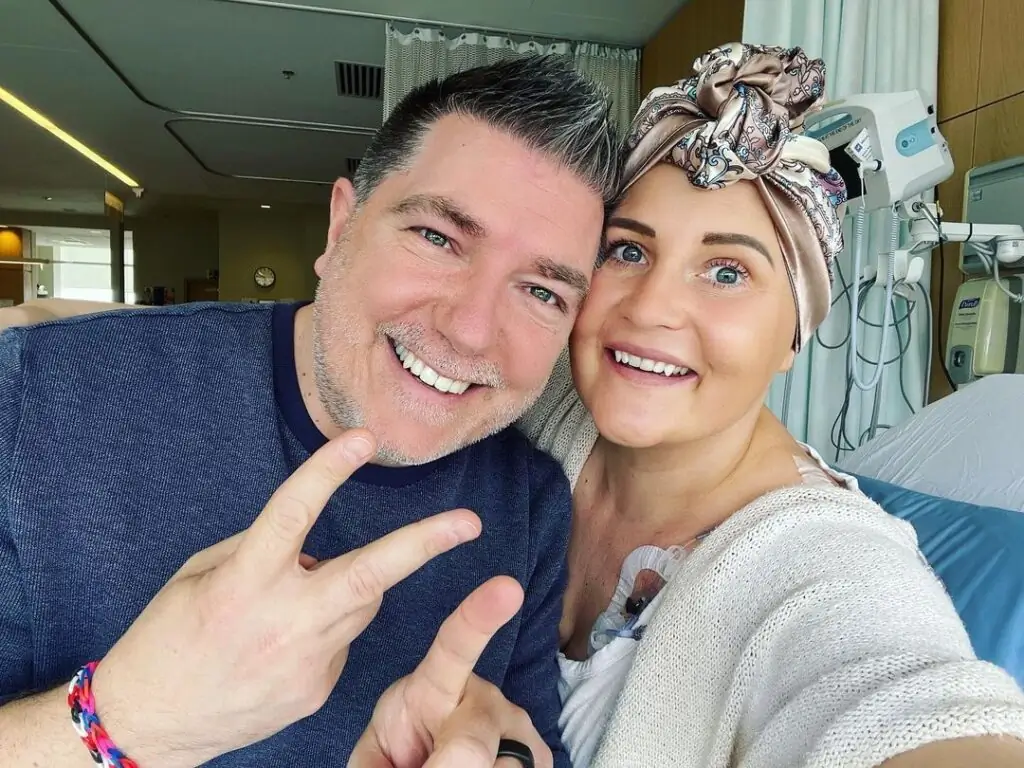
The role of a supportive community during breast cancer treatment
Jennifer Stewart: You opened a really impactful Instagram account called “Tor Fights Cancer,” now called “Tor Beat Cancer.” How did you prepare yourself mentally to go on this path?
Victoria McGlone: I remember early on having a chat with my husband and saying, “I might create an Instagram account and share my journey.” And I remember seeing his face and he’s like, “Oh, gosh, I don’t know why you would do this?”
And I didn’t really know at the time why I was doing it. I just thought I should probably share, and in the end, it turned out to be one of the most cathartic and supportive places. I found my little corner of the world on Instagram.
I had no idea how big the cancer community was. The more I shared, the more love I found. I found this corner of the internet where I felt women cheering me on and rooting for me. I shared some of the hardest parts of the journey, as well as the fun stuff like the wig shopping and some of the better stuff.
If you receive that diagnosis in private, even if you spend time on social media in private, there are resources and education and support on social media that you just don’t get through the hospital and through the cancer programs. It was crowd-sourced community support for me.
Jennifer Stewart: What is something you wish you would have known throughout your journey?
Victoria McGlone: I wish I would have known that this time next year I’d be okay. I knew my odds were really good, but when you’re going through it in the throes of chemo, and the large surgery that I went through, I actually didn’t see light at the end of the tunnel for a long time. You trudge every day; it gets really tiring.
Early stage breast cancer — stage one to three — is now considered curable breast cancer; the odds are stacked in your favour to beat it. It’s a really nasty road. I wouldn’t wish the year of treatment I underwent on anybody, but now a year later, I’m sledding down my hill with my kids and I’ve got about 15 wigs.
I just wish I’d known how well I would do out the other side, and I feel healthier and more in tune with my body and more grateful for my body than I ever had before.

